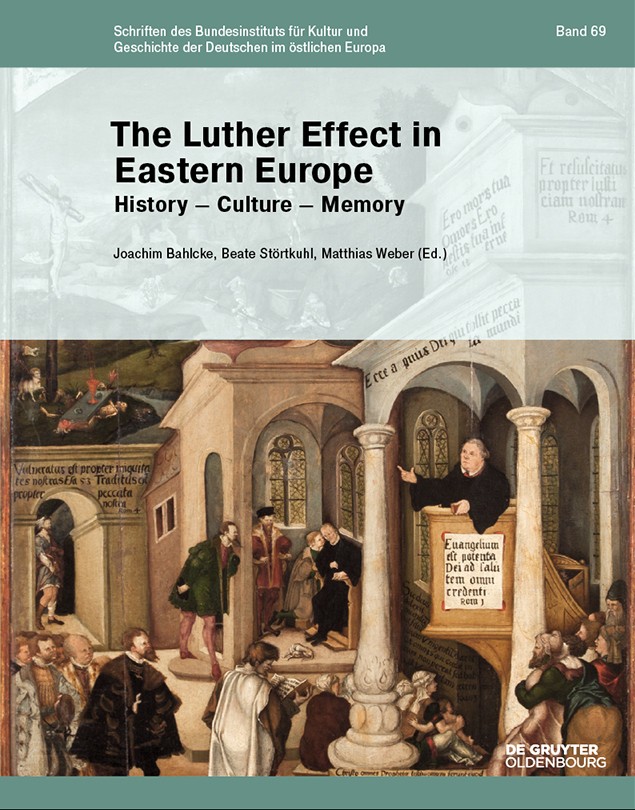Band 69: The Luther Effect in Eastern Europe

Joachim Bahlcke, Beate Störtkuhl, Matthias Weber (Eds)
The Luther Effect in Eastern Europe
History, Culture, Remembrance
2017. 379 Seiten.
ISBN 978-3-11-053767-3, 29,95 €.
The word coined in the German title of this book, Luthereffekt, aims to express the wide-ranging impact of the Reformer Martin Luther not only on theology and church life, but also on the cultural, spiritual and political developments of his time. The book focuses on the echoes and resonances of Luther’s teaching across Eastern Europe. The evolution phase of the confessional churches was slower here than in most of the territories of the Holy Roman Empire. Luther’s teachings spread, but in competition with those of other Protestant movements, and the relationship between religious and national adherence played a key part. The volume spans the period from the sixteenth century to the present day, and bears witness to the consequences of the Reformation still in evidence, for example, in Poland and in the territory of modern Romania. Alongside the history of events, it also highlights how Reformation thinking was conveyed through literature and other writings, art and architecture, and how this cultural heritage has been preserved and kept alive.
Contributions are by Joachim Bahlcke, Małgorzata Balcer, Katrin Boeckh, Hans-Jürgen Bömelburg, Kęstutis Daugirdas, Winfried Eberhard, Detlef Haberland, Jan Harasimowicz, Wilhelm Hüffmeier, Bernhart Jähnig, Grażyna Jurkowlaniec, Krista Kodres, Eva Kowalská, Kolja Lichy, Anna Mańko-Matysiak, Péter Ötvös, Maciej Ptaszyński, Anja Rasche, Maria Skiba and Frank Pschichholz, Edit Szegedi, Matthias Weber, Evelin Wetter, and Martin Zückert.
Flyer "Luthereffekt" (in German and English)
